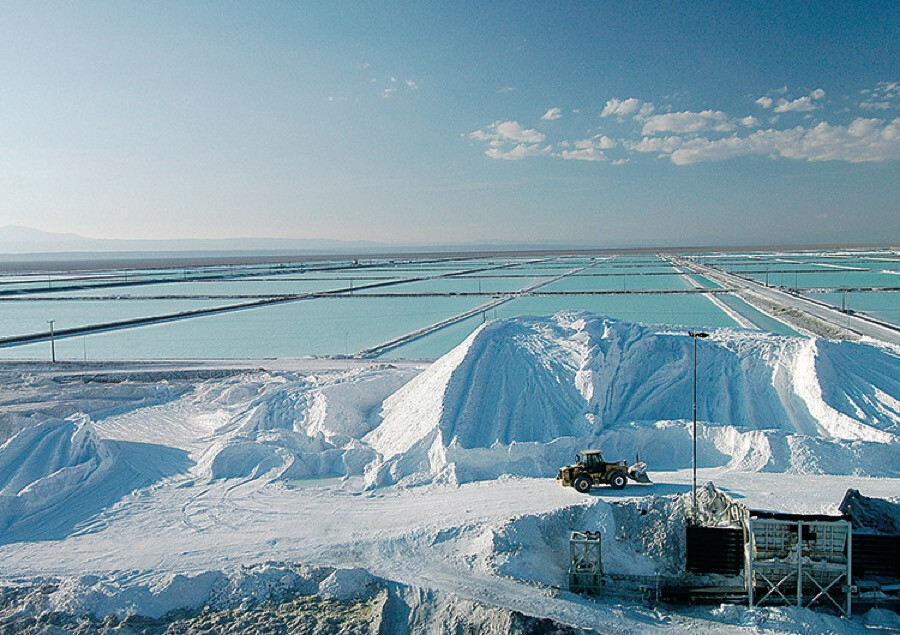Argentine Mining, Stagnant for Over a Decade Due to Currency and Capital Controls, Reaches a New Turning Point

BUENOS AIRES – Global mining giant Rio Tinto's $2.5 billion (approximately 3.4 trillion Korean Won) lithium mining project in Salta Province, Argentina, has secured the first approval under the Argentine government's Large Investment Incentive Regime (RIGI), signaling the revitalization of Argentina's mining sector. Daniel González, Secretary of Mining and Energy Coordination, officially announced this decision at a conference held in Buenos Aires on May 20.
Roberto Cacciola, President of the Argentine Chamber of Mining Entrepreneurs (CAEM), told Reuters, "There was strong anxiety regarding RIGI, and this news is very important and welcome," stating that Rio Tinto's approval would mark a significant turning point for the Argentine mining industry.
This approval aligns particularly with Rio Tinto's strategy to intensify investment in lithium projects across the so-called 'Lithium Triangle' region, which includes Argentina, Bolivia, and Chile. RIGI is an exceptional investment incentive program designed to attract foreign investment by offering tax and customs benefits, access to international arbitration, and long-term stability plans.
RIGI: Key to Unlocking Argentina's Mining Potential
According to a recent report by bne Intellinews, Canadian mining company McEwen Copper is also advancing the Los Azules project, one of the most ambitious copper projects in Latin America, in cooperation with Stellantis and Rio Tinto. They anticipate that President Javier Milei's pro-business reform policies will unlock Argentina's mining potential. Michael Meding, Vice President of McEwen Copper, told bne Intellinews, "We submitted our RIGI application in February, and the authorities are evaluating our project. We are optimistic about the approval."
Argentina's nascent mining sector, which had been stagnant for over a decade due due to strict currency and capital controls, is now regaining vitality with President Milei's implementation of RIGI. Aiming to attract foreign investment, RIGI offers exceptional tax benefits, including reducing the corporate income tax rate from 35% to 25%, dividend income tax from 7% to 3.5%, eliminating export duties, and accelerating VAT refunds. Considering that most VAT rates are 21%, these benefits are expected to provide significant advantages to investing companies. RIGI also guarantees complete freedom of import and export, and all these benefits are provided within a framework of 30 years of investment stability.
RIGI encompasses eight key sectors: industrial forestry, tourism, infrastructure, mining, technology, steel, energy, and oil and gas. It also includes long-term strategic export projects aimed at positioning Argentina as a reliable supplier in areas where it currently has low market share globally.
The Future of Argentine Mining and RIGI's Conditions for Success
Rio Tinto's groundbreaking approval signals a potential turning point for Argentina's mining sector, which has struggled to attract significant investment amid economic instability. Historically, frequent changes in government, unstable economic policies, and complex, delayed permitting procedures have often caused foreign investors to hesitate. In particular, strict foreign exchange controls have made it difficult for foreign investment capital to flow in and out, creating a highly uncertain environment for companies to decide on investments.
The Milei government recognizes these issues and is demonstrating a strong commitment to attracting foreign capital and achieving economic recovery by providing a predictable investment environment and exceptional incentives through RIGI. However, RIGI's ultimate success will depend on the government's ability to maintain policy consistency and effectively address ongoing concerns, such as regulatory delays that have deterred international investors.
Rio Tinto's approval clearly demonstrates that Argentina is facing new opportunities in the mining sector. If combined with its abundant mineral resources, including lithium, and reform policies like RIGI, Argentina has the potential to emerge as a significant player in the global mining market. However, realizing this potential requires consistent efforts from the government and a restoration of investor confidence. Attention is now focused on how Argentina's mining sector will develop in the future.
[Copyright (c) Global Economic Times. All Rights Reserved.]



























